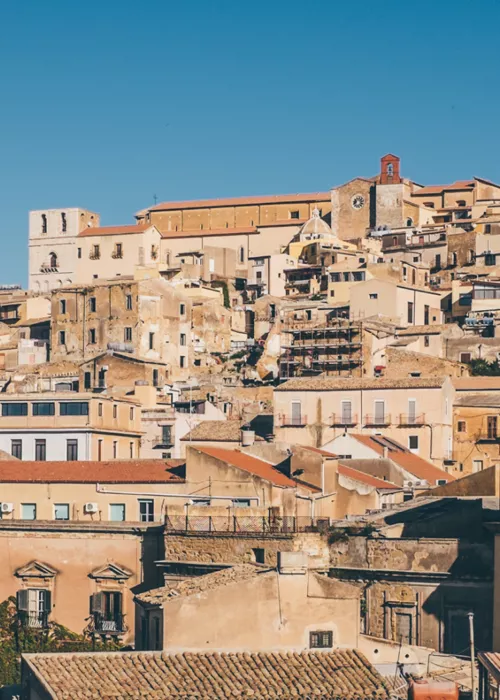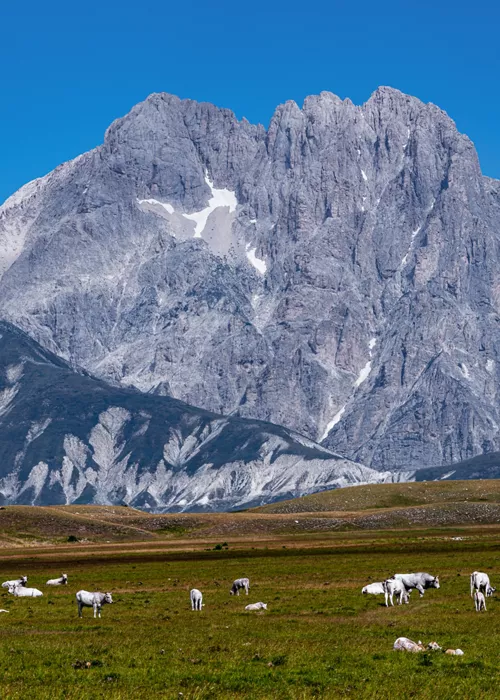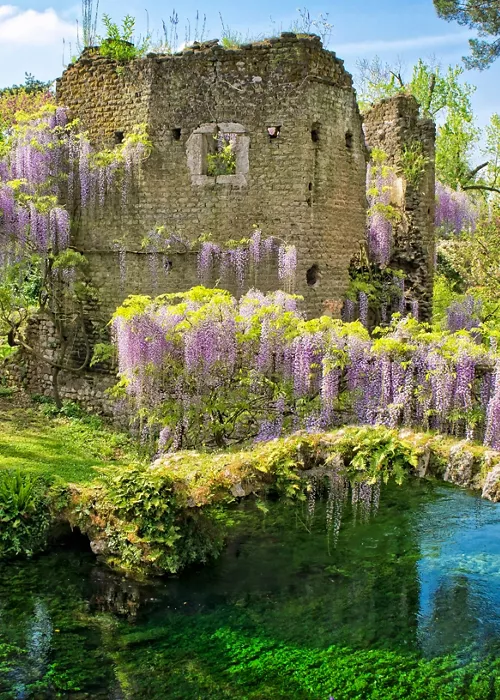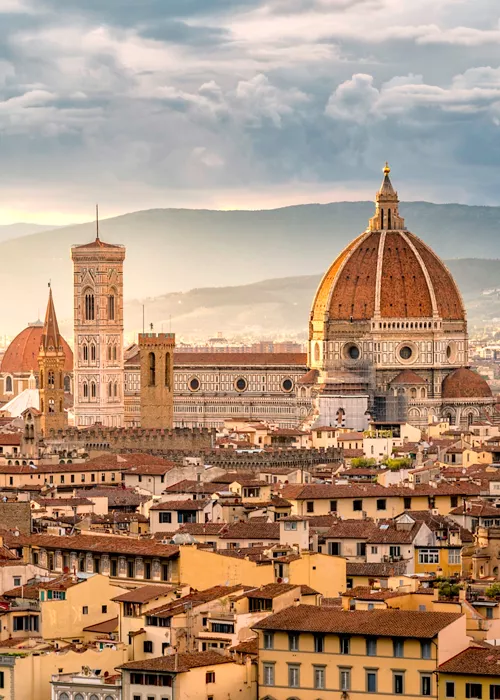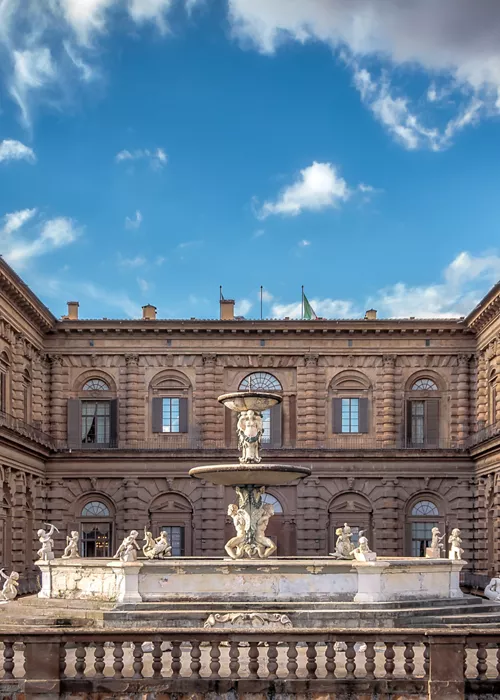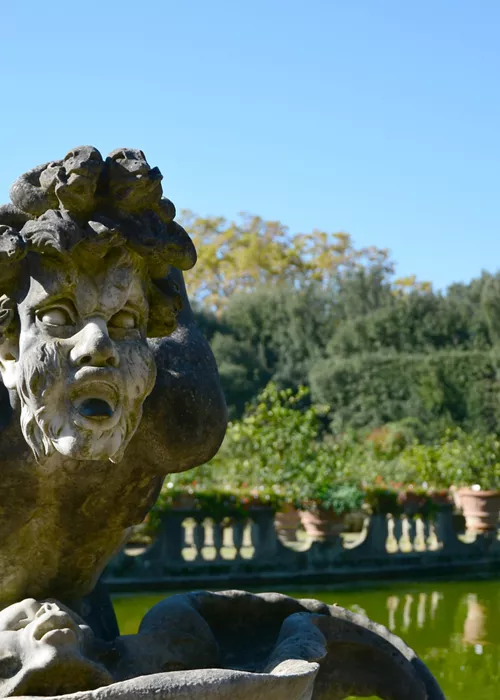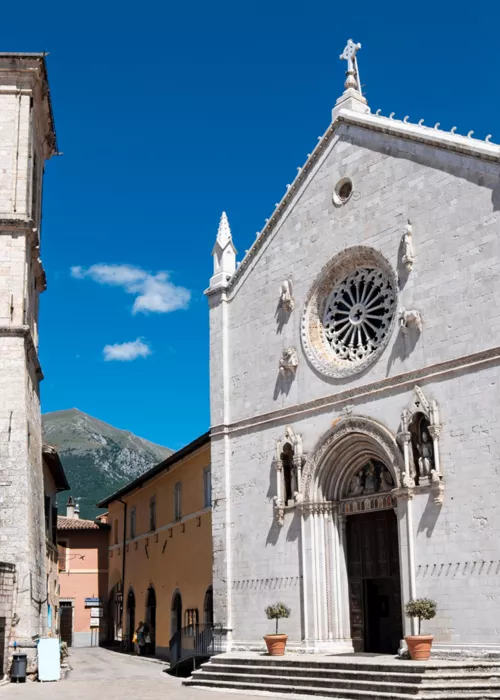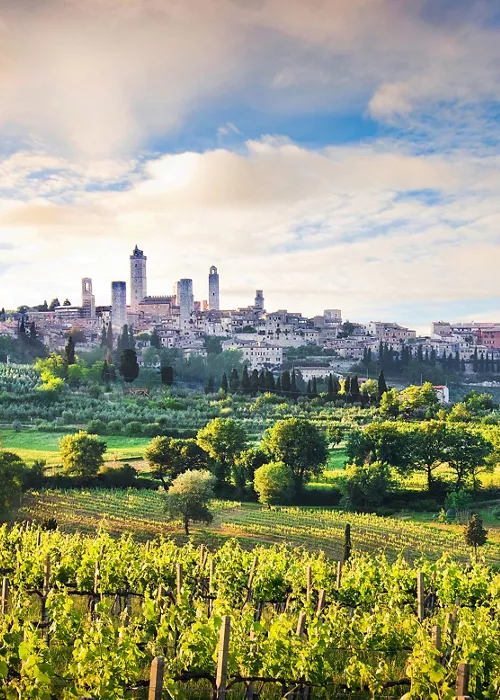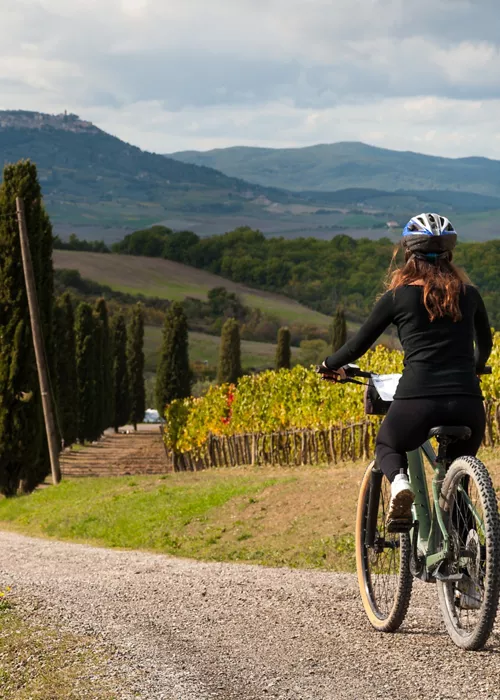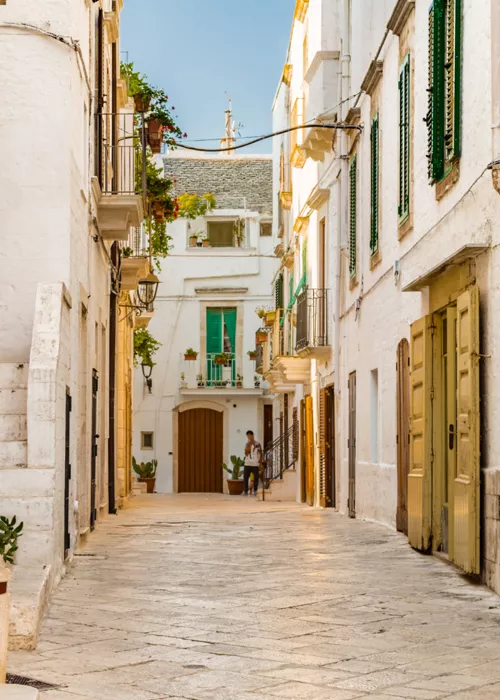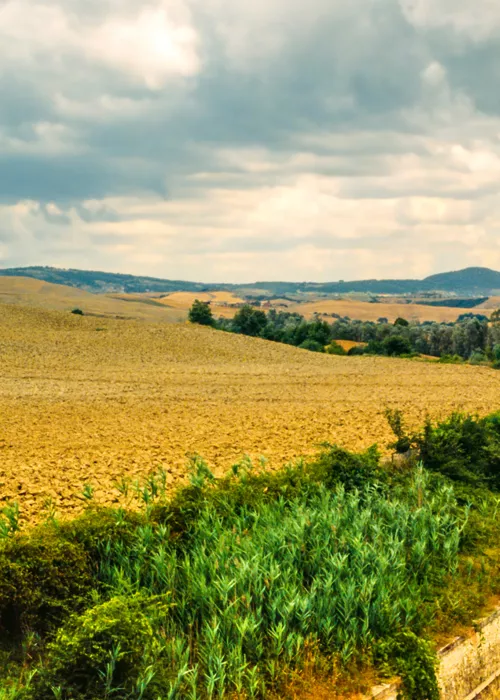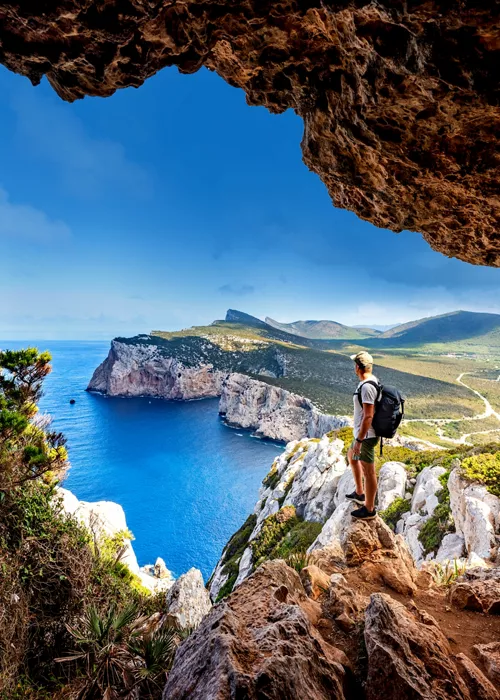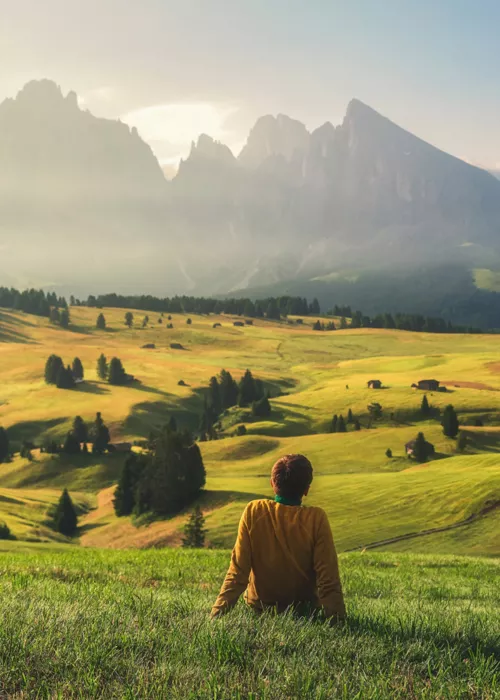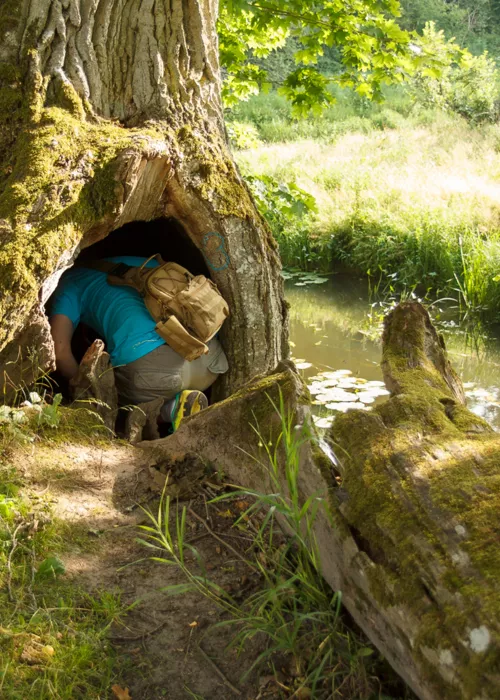Flowers in Italy: a colour palette
5 minutes
Index
Agrigento: shades of pink among the temples
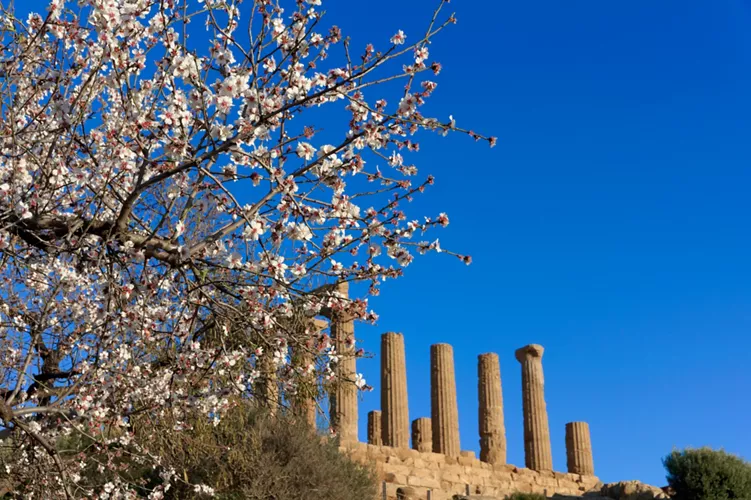
Agrigento, in the Valley of the Temples, a UNESCO heritage site, is one of the first places in Italy to see a spectacular array of buds and blooms. DUe to Sicily's mild climate, as early as the end of January the almond trees make for an early spring, as their branches blossom with tiny white and pink flowers . The view of this landscape, covered in flowering almond trees dotted with ancient temples, is the only one of its kind anywhere in the world, and is absolutely worth seeing.
Campo Imperatore turns from white to violet
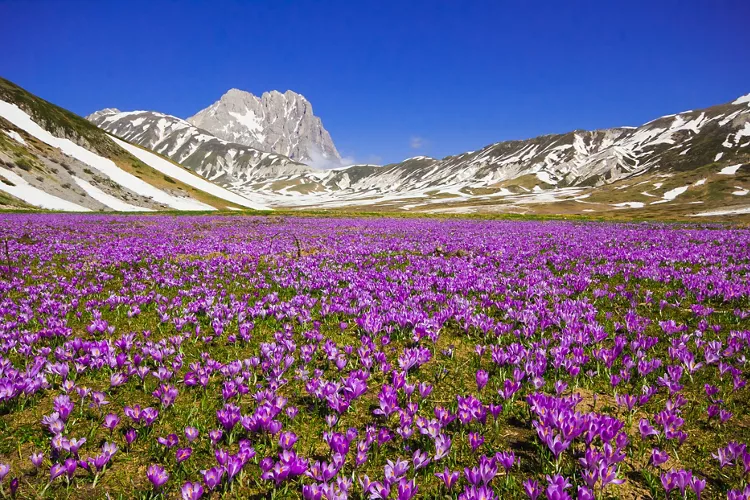
Towards the beginning of March, when the snow has completely melted, in Abruzzo the crocus starts to blossom, giving an intense new colour to the Italian countryside. The high plateau of Campo Imperatore, in the National Park of Gran Sasso e dei Monti della Laga (located at an altitude of 1500-1900 m) is covered with dozens of feisty little purplish flowers, their stamens covered with precious saffron, which is then carefully harvested. Our tip? Book early to avoid disappointment! The flowers are so delicate that the spectacle lasts only a few days.
Ninfa: nature puts on a show
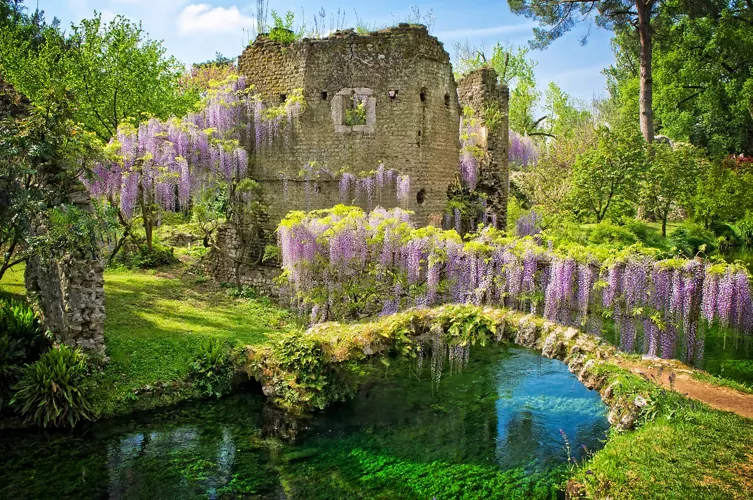
Th Garden of Ninfa is a typical example ofEnglish garden in which blooms follow one another throughout the spring, from wisteria to bulbous plants, from fruit trees to hedges: numerous species brought here in the early 1900s by the inventor Gelasio Caetani and planted in the area of the lost medieval town of Ninfa, of which only several ruins remain today, some of which were restored during the creation of the garden. Crossed by the course of the Ninfa river, which rises near the city and flows for 30 km towards the Pontine plain, forming the small lake of the same name, in this garden every flowery corner looks like something out of the imagination of a Renaissance painter.
Valeggio sul Mincio: the tulips take the stage
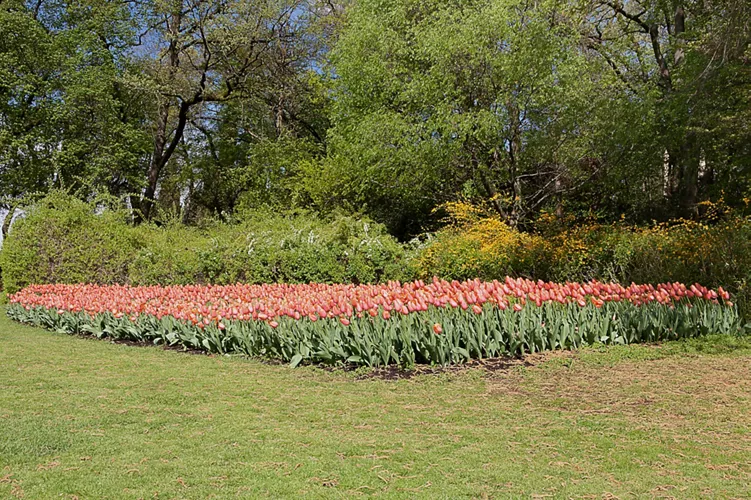
A short distance from Lake Garda, in Valeggio sul Mincio, you'll find one of Europe's most decorated gardens: Parco Giardino Sigurtà. Here, from mid-March until the end of April, you can enjoy the magnificent and colourful sight of flowering tulips. Over the years, the Sigurtà has been awarded the title of "Most Beautiful Park in Italy" and the gardens are ranked the second most beautiful gardens in Europe.
Boboli Garden, Renaissance nature

A place of enchantment just above Florence, behind Palazzo Pitti, the Boboli Garden in spring is enriched with magnificent blooms. The Medici were the first to take care of its arrangement, laying the foundations for what would become the "Italian garden", later a source of inspiration for many European courts. Its vast green area is evenly divided, and is filled with ancient and Renaissance statues, adorned with caves - such as the famous one created by Bernardo Buontalenti - and of sumptuous fountains such as Neptune and Ocean. Wild orchids, old varieties of roses, water lilies, the centuries-old Medici citrus fruit collection on display in the open air: are some of the highlights of the Boboli Gardens, which, from March onwards and throughout the summer, are filled with brightly coloured and shaped flowers.
Vignola, waiting for cherries
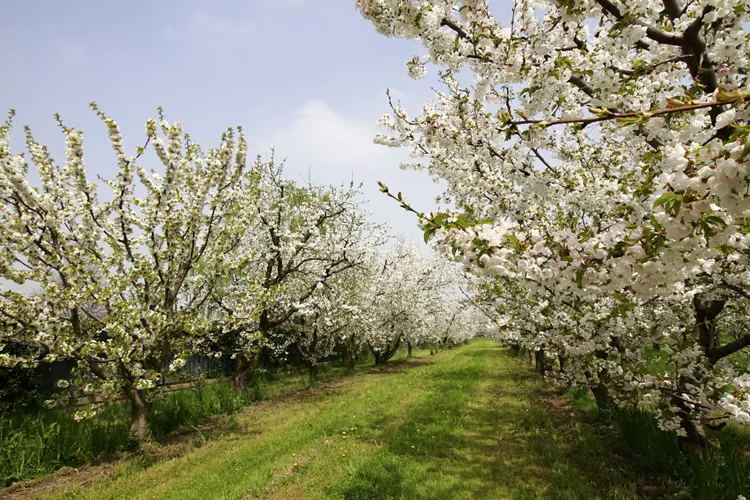
To see the cherry trees of Vignola, in the Modena area, filled with the precious red fruits that almost break the branches with their weight, you must first pass through the blooming. Since the end of April, the rows of trees in the cultivated areas of the district are covered in pink-white flowers. During this period, the area hosts numerous festivals and events, in anticipation of the harvest that will bring the "duroni" (as the tasty cherries produced here, protected by the PGI mark, are called) first to the market and then to the table. You can also wander among the trees by following the Panaro Nature Trail by bicycle., in the shadow of the poplars and willows.
Castelluccio di Norcia, not only lentils
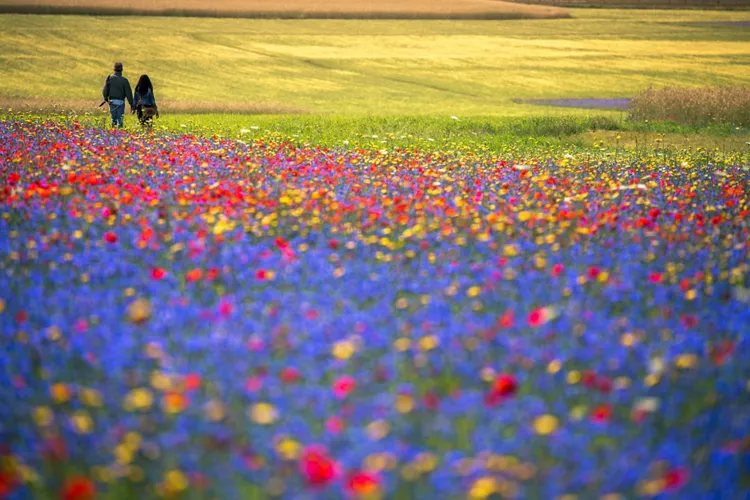
The blossoming that colours the valleys around Castelluccio di Norcia, in Umbria, has various shades and long timescales. Here, since the end of May, the lentil fields have been putting on a show, tesoro IGP della zona. This tasty legume is in its habitat of excellence and every year rewards those who keep its cultivation alive. Curiosity: also contributing to the magic of this flowering are the many poppies, gentians, daffodils, wild mustard, violets, cornflowers, clovers and other wild herbs of the area. Perfect viewpoints are in the areas of Pian Grande and Pian Perduto, near Norcia.
The yellow-tinted Renaissance
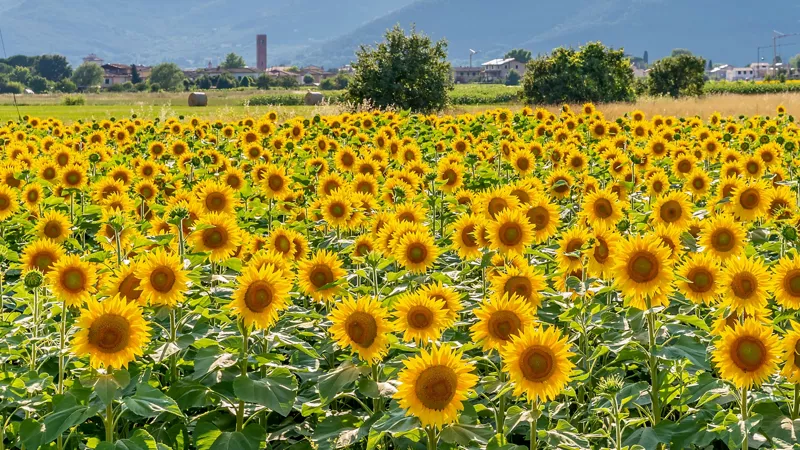
Loved by Van Gogh, the sunflowers in bloom provide a unique backdrop, that speaks of summer, of warmth, with the song of crickets and cicadas in the background. In a Tuscan Summer they are the absolute stars, turning entire valleys yellow-green. However, each year the cultivated fields vary, with crop rotation for the sake of the earth, so the encounter with these giant flowers may not always be on the same land. But the areas in Tuscany that are suited to the cultivation of this plant are abundant, so they will be easy to come across widespread yellow blooms, from Maremma to San Gimignano, from Val d’Orcia to the Grosseto area.
Salt San Giovanni, the village of lavender
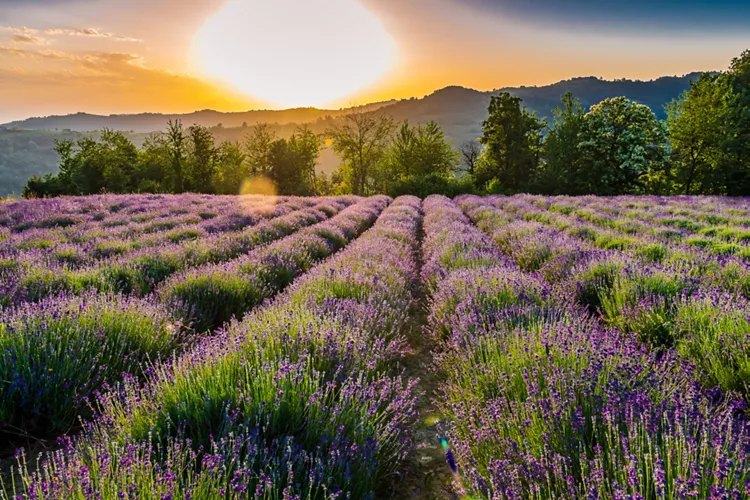
In the middle of summer, Piedmont records a visually striking bloom in solid colours: it is the time for lavender, capable of transforming the hills of Sale San Giovanni in a lilac-hued canvas. And it is thanks to the cultivation of lavender that this small village (of about 180 inhabitants) has been able to reinvent themselves and find a new dimension. And the harvest of those thousands of neatly lined up plants, which, moved by the wind, resemble a sea with purple reflections, will then go to the best herbalist laboratories throughout Italy.


